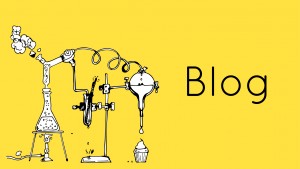The placebo effect is one of the best examples of mind over matter; we are able to affect our bodies through our beliefs. Most commonly referred to with respect to pharmaceuticals, a placebo is a simple sugar pill administered under the belief that it is a drug, which is found to have positive effects on an individuals health. Many new drugs are sunk before reaching the market as they are no better than a sugar pill. The power of the placebo gives it use as a medicine, but some would argue that such deception is unethical. I would argue that this is not the case.
The scope of the placebo effect is wide. Sugar pills labeled as muscle relaxing drugs caused muscle relaxation, whilst the same pills labeled as stimulants induced muscle tension. When used as painkillers, placebos were found to be half as effective as aspirin and half as effective as morphine, despite morphine being a much more powerful painkiller.
A study of a valium-like drug found a yellow variant was preferable for treating depression, and a green one for anxiety. Placebo capsules elicited stronger responses than placebo pills, whilst an injection of saline solution (with no known therapeutic effect) proved even stronger. Sham surgery, where a surgeon makes an incision and then pretends to perform an operation, was very effective, especially that involving hi-tech machinery.
To be effective, the deception involved must be well maintained. Participants under the illusion that a drug was more expensive were more responsive to its perceived effect. Branded packaging also proved more effective than bland boxes. This effect is not restricted to placebos: some people find branded, expensive ibuprofen to be more effective than supermarkets own brand products, only because its looks better and costs more.
The placebo effect is not limited to medicine, and can be observed in everyday life. Hotel cleaners told that cleaning hotel rooms constituted good exercise lost weight and felt healthier. In the 19th century, patients were admitted to a local hospital with food poisoning symptoms, having been told tomatoes were poisonous. This is an example of the nocebo effect the reverse placebo effect.
What is the physiological basis of the placebo effect? It is unclear, but we believe that expectancy interacts with other neuronal and physiological systems. It is also suspected that association affects the patient. This was demonstrated by having patients take genuine medicine with a sweet drink, then observing the drink elicit the response of the medicine. However, research into the placebo effect is difficult: from an ethical perspective, the researcher is deliberately withholding medicine from an ill patient.
This is the key point; many believe that lying to a patient and providing fake medicine goes against a doctors role, and undermines the doctor-patient relationship. Some individuals are less susceptible to the placebo effect, and withholding proper medicine from these individuals is dangerous. As mentioned, the placebo must be dressed up and priced as genuine medicine, leading to fears that patients could be overcharged for useless, fancy looking skittles.
However, there are cases where placebos are more useful than genuine medicine. Patients suffering from severe burns cannot be given morphine (due to respiratory problems associated with); a placebo painkiller can be of great relief. Similarly, over prescription of antibiotics can lead to drug resistant bacteria, a problem solved by prescribing placebos to less serious cases.
A placebo need not be administered dishonestly. It has been shown to work where patients were told they would receive pills whose mechanism is unclear. And whether or not the doctor is truthful to the patient, a doctors ultimate role is to aid recovery, and if a placebo is the most effective way of doing so, it should be considered unethical not to prescribe it.
The placebo effect demonstrates the incredible power of the mind over the body. It also asks the question as to whether it is acceptable to deceive patients for with the aim of helping them. The issue comes down to your belief in the role of the doctor; to be honest with the patient or to relieve the patients suffering. Placebos have the unqiue ability to make these two qualities mutually exclusive.
![The Placebo Effect The placebo effect is one of the best examples of mind over matter; we are able to affect our bodies through our beliefs. Most commonly […]](/wp-content/uploads/2011/10/Blog-image-01-620x300.jpg)
